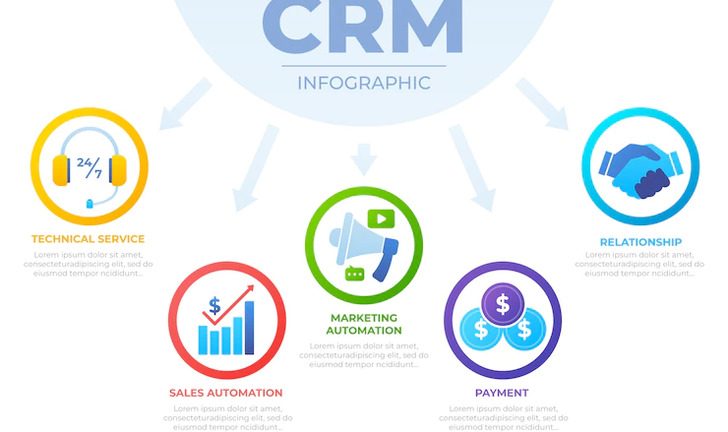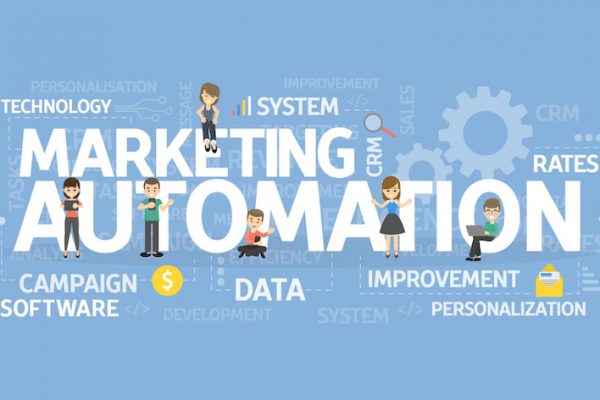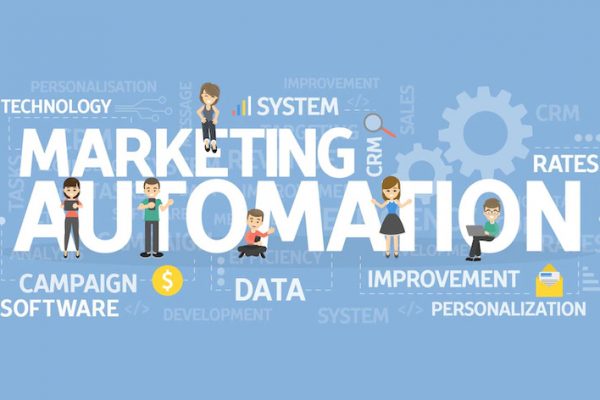What are CRM and its advantages? CRM stands for customer relationship management. It’s software that helps you manage your relationships with customers and potential customers in a database format.
The process is made more convenient with tools like dashboards, graphs, reports and much more. There are several types of CRM software available on the market, but they all follow the same basic principles.
Types of CRM
CRM is a very broad field, and each type of CRM supports customer relationships in its own specific way.
Right at the beginning, we should talk about how to correctly understand the term “customer relationship management”. It is not about simply storing information about customers in a database.
It is much more about their relationship with the company, its products and services, including the communication process.
In fact, there are two types of CRM:
1. Internal CRM. It is designed for sales departments to maximize the efficiency of their work. It allows you to keep track of all customers, leads, orders and deals, as well as control communications with them. For example, HubSpot, Highrise, Zoho CRM, Salesforce CRM;
2. External CRM. It is designed for the customer service department to optimize the work of specialists in their contact with the customer and the ways they provide support. Examples, are SugarCRM, Insightly, and Zoho CRM.
In fact, sometimes there are independent products with separate functionalities that serve as parts of both types of CRM:
- Communication tools (chat software – LiveChat);
- Task managers (Calendly);
- Interaction tracking and reporting tools (Intercom);
- Sales automation tools (Salesforce Sales Cloud).
Customer relationship management is a business technique used to manage inventory and process orders. While the number one type of CRM is small business CRM software, there are other types of CRM such as personal CRM, student CRM and more.
This enables small businesses to compete with larger businesses. Because tools used in small businesses are more accessible for smaller companies, it can be easier for them to maintain a professional appearance with better management abilities and access to more customers.
Shopify has many options for small business owners to choose from when it comes to CRM, including MailChimp, Zoho and more. Shopify has a free 14-day trial which allows potential users to decide if they want to use the software before purchasing.
By using the internet to its full potential, smaller companies can operate as if they are much larger than they are, letting them compete with larger businesses while still having a personal connection with their customers.
Advantages of CRM
One of the biggest benefits of a CRM system is the ability to identify and target ideal customers.
Just like you would need to look at a restaurant menu, scan the different dishes and make an order, a CRM system gives you access to all your customers’ specific details and helps you figure out what they want.
But the information and insights you can get through CRM are far more than just what your customer wants.
- A CRM system tracks customer data so you know who is buying your products, when they have placed their orders and how much they have spent with you.
- It also allows you to see which of your products are selling better than others, so you can easily replace the ones that aren’t doing so well with new ones that will get better sales.
- It is a system that enables the organization to monitor, track and enhance relationships with customers and prospects.
- It helps in managing, measuring and improving activity related to customers.
- This includes activities such as recording customer data, segmenting customers, identifying potential prospects, and developing strategies to improve customer retention and satisfaction as well as increase revenue.
- The data in a CRM system can also be used for future promotional campaigns and product development. You can create customer segments based on their purchase behaviour and demographic information.
- Then, you can send targeted promotions to each customer segment, helping increase conversion rates.
How Can CRM Help a Small First-start Online Business?
You’ve got an online store and you have started to get business coming in, but keeping up is becoming a nightmare.
The sheer number of emails, tweets, Instagram messages and phone calls is overwhelming and it’s starting to take its toll.
You get so bogged down with what needs doing that you don’t have time to deal with what needs thinking about.
For a customer to stick to you, they must enjoy using your product or service. They need to be able to trust you not to deliver something they will not be happy with, they will use the product or service to their satisfaction and most importantly share that experience with others.
This is when customer relationship management (CRM) comes in, customer relationship management helps you in connecting with future customers and reinforcing customer relationships with your current customers.
For example, knowing when a customer purchased something from you last time but this time he has purchased from you a similar item but for a cheaper price, you can inform him immediately on it as well as notify him of other related offers from your store that he may have been interested.
The beauty of the internet and social media is that you have the ability to engage with your customer almost immediately, sometimes just having a direct interaction with one of them can solve their problem, sometimes even before they are aware of it.
If you want your business to grow then you need to streamline the way you manage your contacts. CRM is not just for businesses with lots of staff, they are needed by small businesses too because the way we buy has changed.
To know how to protect your brand and how to grow a successful small business with HubSpot CRM then your business needs to be organised. An important part of being organised is being able to tailor your approach to the individual customer.
You should be able to:
- Remember what they bought from you
- Know what they like from you
- Know what they didn’t like from you
- Know if they’re happy or not with the service you provide them
- Know if they’ve seen your last email – it doesn’t have to be left to chance that the email has gone through.
So in summary CRM can help a small first-start online business and it’s worth its while.
Why HubSpot CRM?
HubSpot is a software as a service (SaaS) customer relationship management (CRM) application and platform. The software allows businesses to track marketing campaigns, identify and develop leads, and measure sales activity.
It’s a marketing tool that helps you grow your business. But when you start digging in and looking at it from a variety of angles, you realize this is a powerful tool for many different types of businesses.
- Track deals in one place, manage follow-ups and trigger reminders when prospects are ready to buy.
- HubSpot CRM provides a complete view of your contacts, leads, and customers at your fingertips, making it easier than ever before to build relationships and take action.
- Strengthen your marketing.
- Stop sending people to a website where they can’t buy anything.
- Manage customers and sales leads outside of a web browser.
- Collaborate with teammates and customers in real-time.
- Take better care of your customers.
- Upload and create email templates on the fly.
For many businesses, the CRM system you choose is the backbone of your entire business. It’s used to manage everything from contacts, leads and deals to workflows, your calendar and important notes for your team. Click here to see the latest deal today.






I don’t think the title of your article matches the content lol. Just kidding, mainly because I had some doubts after reading the article.